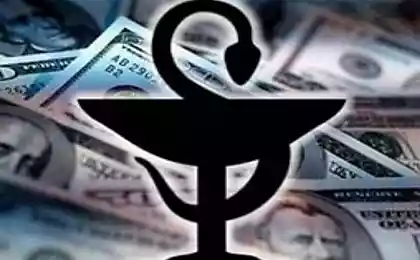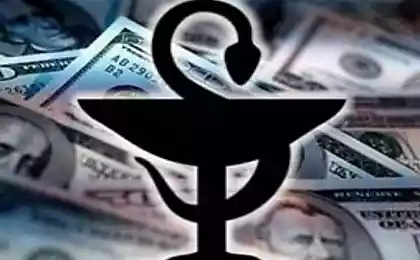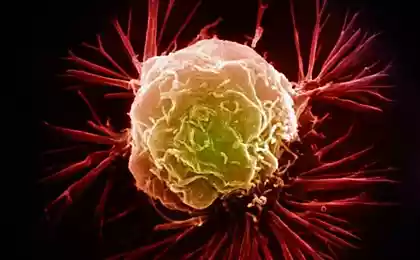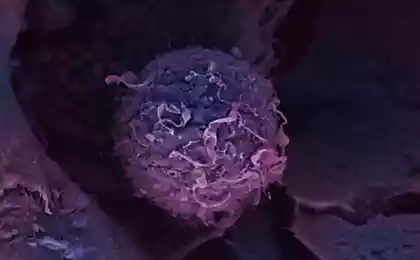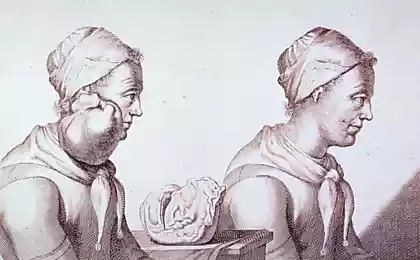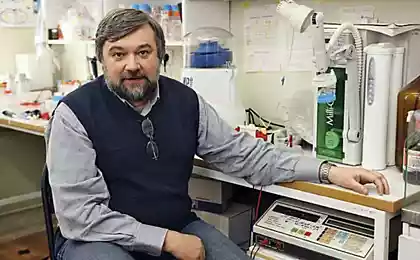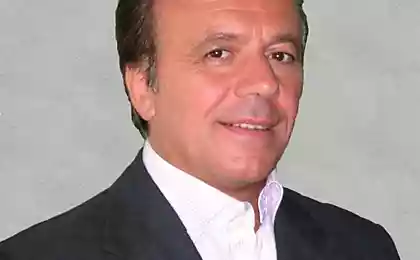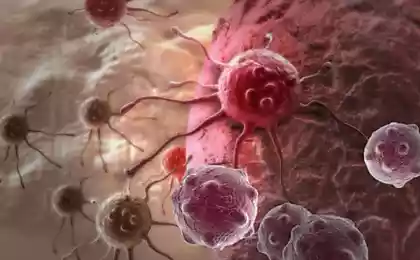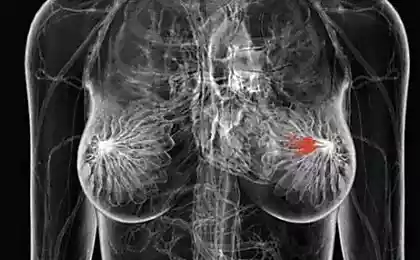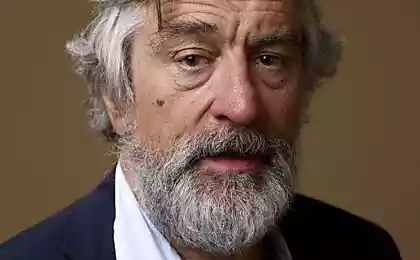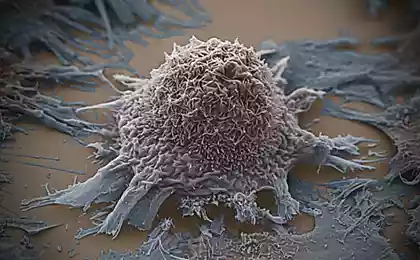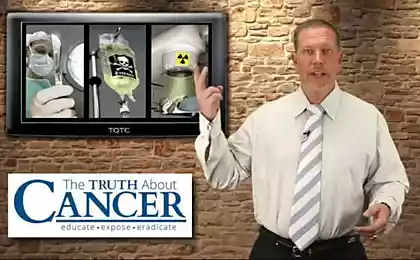136
First time! In the United States cured 49-year-old woman with advanced breast cancer.
Look at Judy! Shining, cheerful, active. It is hard to believe that some two years ago, oncologists predicted a woman no more than three months of not the happiest life, because her body mercilessly devoured metastasizing breast cancer in the terminal stage. And although with this diagnosis, the chances of survival are reduced to zero, Judy Perkins managed to defeat the tumor And to inspire millions of women to fight this deadly disease.

American oncologists have described the first ever case of a complete cure of breast cancer in the last stage, resistant to the effects of drugs. A team of scientists from the National University of the United States for cancer research argues that although this method of treatment is purely experimental, in the future it can radically change the idea of treating not only breast cancer, but also cancer of other organs.
In 2003, mothers of two Judy Perkins was diagnosed with a terrible diagnosis. After seven courses of ineffective chemotherapy, the woman had both mammary glands removed, and for ten long years the cancer did not make itself felt. In 2013, the ill-fated disease returned in an even more aggressive form, affecting other organs.
Doctors gave Judy no more than three years of life, while the latter was not going to give up: in an attempt to cling to life with all her might, the American agreed to an experimental test. breast cancer.

The woman was completely cured by personalized T-cell immunotherapy with the preliminary detection of tumor-specific mutations. During the experiment, the scientists applied the method of adaptive cell transfer - the use of the patient's own antitumor T cells that recognize neoantigens.
Often in the body of an oncological patient, such cells are negligible, therefore, he cannot cope with the disease on his own. However, if the antitumor T cells are isolated, multiplied and then injected back into the patient, the immune system will be strong enough to completely destroy the malignant cells, even if the tumor has already begun to spread throughout the body.

As part of clinical trials, 49-year-old Judy Perkins biopsied the tumor and isolated tumor-infiltrating lymphocytes from tissue samples, among which they found specific white bodies capable of attacking cancer cells. The scientists multiplied tumor-tuneable cells to 80 billion and injected the woman with pembrolizumab therapy.

“I was extremely skeptical because I knew there was a hell of a chance of winning. But after just two weeks, I felt much better! Indeed, in Judy’s case, the therapy was extremely effective – the ill-fated neoplasms began to decrease noticeably after the first week of experimental injections.
After six months, almost all metastases disappeared, and by the 48th week all traces of the terrible disease disappeared without a trace. A little more than two years have passed since the miraculous healing, and there are no traces of cancer returning to the woman’s body.

"Scientists may call it remission, but I call it healing," says Judy Perkins. According to oncologists involved in the experiment, they still did not find out what exactly helped the woman to overcome the disease: cellular disease. immunotherapy for cancer Or background treatment with pembrolizumab. However, bright minds continue to work on innovative methods of cancer treatment and hope to soon repeat a similar experiment with other cancer patients.

Dr. Steven Rosenberg, lead researcher on the cancer research team at the National University of the United States, said: The patient came to us in despair. All possible treatments have been tried, but none have been successful. Our team’s breakthrough is that a way has been found to identify T cells that will target genetic mutations.
But most importantly, we use the patient's own cells to attack their own cancer. We are talking about the most personalized treatment imaginable.”

A complete study of an experimental method of treating cancer with personalized T-cell immunotherapy can be found in the journal The National Medicine. And we believe that this method of treatment will save the lives of millions of cancer patients, save their families and children from a difficult fate.
Be sure to share with friends the inspiring story of American Judy Perkins, who managed to defeat a terrible disease.

American oncologists have described the first ever case of a complete cure of breast cancer in the last stage, resistant to the effects of drugs. A team of scientists from the National University of the United States for cancer research argues that although this method of treatment is purely experimental, in the future it can radically change the idea of treating not only breast cancer, but also cancer of other organs.
In 2003, mothers of two Judy Perkins was diagnosed with a terrible diagnosis. After seven courses of ineffective chemotherapy, the woman had both mammary glands removed, and for ten long years the cancer did not make itself felt. In 2013, the ill-fated disease returned in an even more aggressive form, affecting other organs.
Doctors gave Judy no more than three years of life, while the latter was not going to give up: in an attempt to cling to life with all her might, the American agreed to an experimental test. breast cancer.

The woman was completely cured by personalized T-cell immunotherapy with the preliminary detection of tumor-specific mutations. During the experiment, the scientists applied the method of adaptive cell transfer - the use of the patient's own antitumor T cells that recognize neoantigens.
Often in the body of an oncological patient, such cells are negligible, therefore, he cannot cope with the disease on his own. However, if the antitumor T cells are isolated, multiplied and then injected back into the patient, the immune system will be strong enough to completely destroy the malignant cells, even if the tumor has already begun to spread throughout the body.

As part of clinical trials, 49-year-old Judy Perkins biopsied the tumor and isolated tumor-infiltrating lymphocytes from tissue samples, among which they found specific white bodies capable of attacking cancer cells. The scientists multiplied tumor-tuneable cells to 80 billion and injected the woman with pembrolizumab therapy.

“I was extremely skeptical because I knew there was a hell of a chance of winning. But after just two weeks, I felt much better! Indeed, in Judy’s case, the therapy was extremely effective – the ill-fated neoplasms began to decrease noticeably after the first week of experimental injections.
After six months, almost all metastases disappeared, and by the 48th week all traces of the terrible disease disappeared without a trace. A little more than two years have passed since the miraculous healing, and there are no traces of cancer returning to the woman’s body.

"Scientists may call it remission, but I call it healing," says Judy Perkins. According to oncologists involved in the experiment, they still did not find out what exactly helped the woman to overcome the disease: cellular disease. immunotherapy for cancer Or background treatment with pembrolizumab. However, bright minds continue to work on innovative methods of cancer treatment and hope to soon repeat a similar experiment with other cancer patients.

Dr. Steven Rosenberg, lead researcher on the cancer research team at the National University of the United States, said: The patient came to us in despair. All possible treatments have been tried, but none have been successful. Our team’s breakthrough is that a way has been found to identify T cells that will target genetic mutations.
But most importantly, we use the patient's own cells to attack their own cancer. We are talking about the most personalized treatment imaginable.”

A complete study of an experimental method of treating cancer with personalized T-cell immunotherapy can be found in the journal The National Medicine. And we believe that this method of treatment will save the lives of millions of cancer patients, save their families and children from a difficult fate.
Be sure to share with friends the inspiring story of American Judy Perkins, who managed to defeat a terrible disease.
This is why our grandmothers love chamomile tea: 15 healing properties
Beauty score from men: scale of attractiveness from 1 to 10. Oh, these "three", "eight"!

